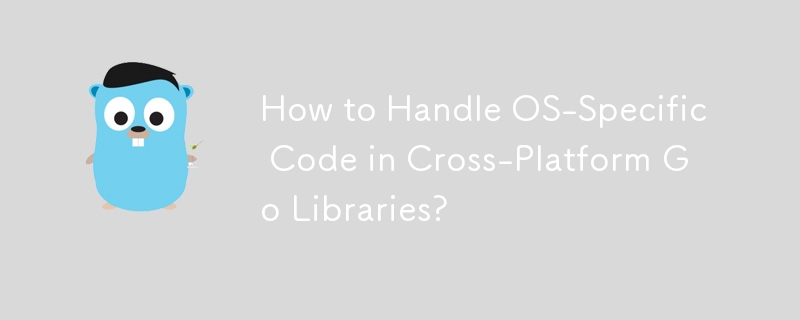

When developing cross-platform Go libraries that rely on OS-specific dependencies, it becomes necessary to differentiate the build process for different operating systems. Here's how to approach this:
For example, let's consider building a library that uses the "encoding/osheb" package for Windows and the "encoding/olson" package for Linux. To organize the build process efficiently, we can leverage build constraints and file naming conventions.
Build constraints allow us to specify conditions that must be met for certain code blocks to be compiled. For Unix-like systems, including Windows, we can use the " build" directive followed by the OS names:
<code class="go">// +build darwin dragonfly freebsd linux nacl netbsd openbsd solaris</code>
This means that the code below this directive will only be compiled for the specified operating systems.
Go standard library packages use a consistent file naming convention to target specific operating systems:
For files that are shared across multiple operating systems, such as "stat_unix.go," include it in the regular package but restrict it with a build constraint.
By using build constraints and naming conventions, you can create a single package that contains OS-specific code, allowing you to effortlessly differentiate the build process for different operating systems.
The above is the detailed content of How to Handle OS-Specific Code in Cross-Platform Go Libraries?. For more information, please follow other related articles on the PHP Chinese website!




